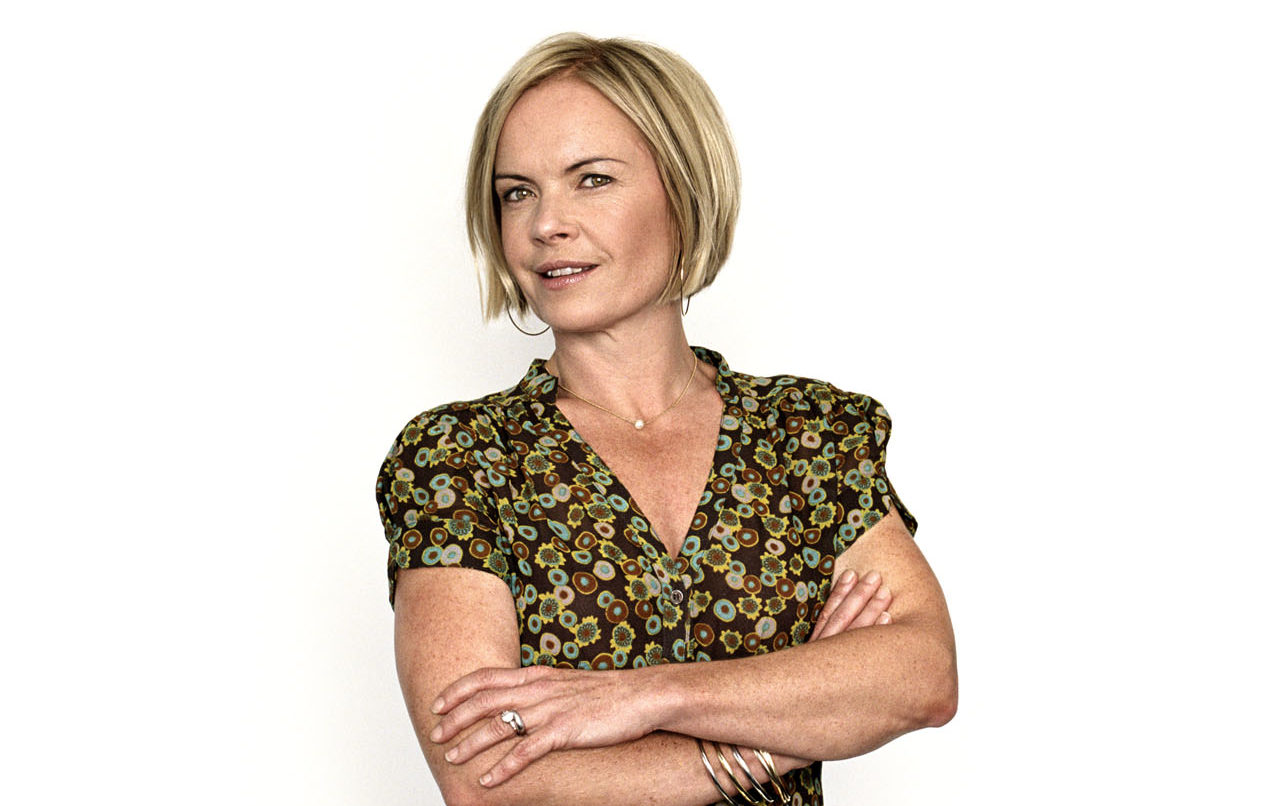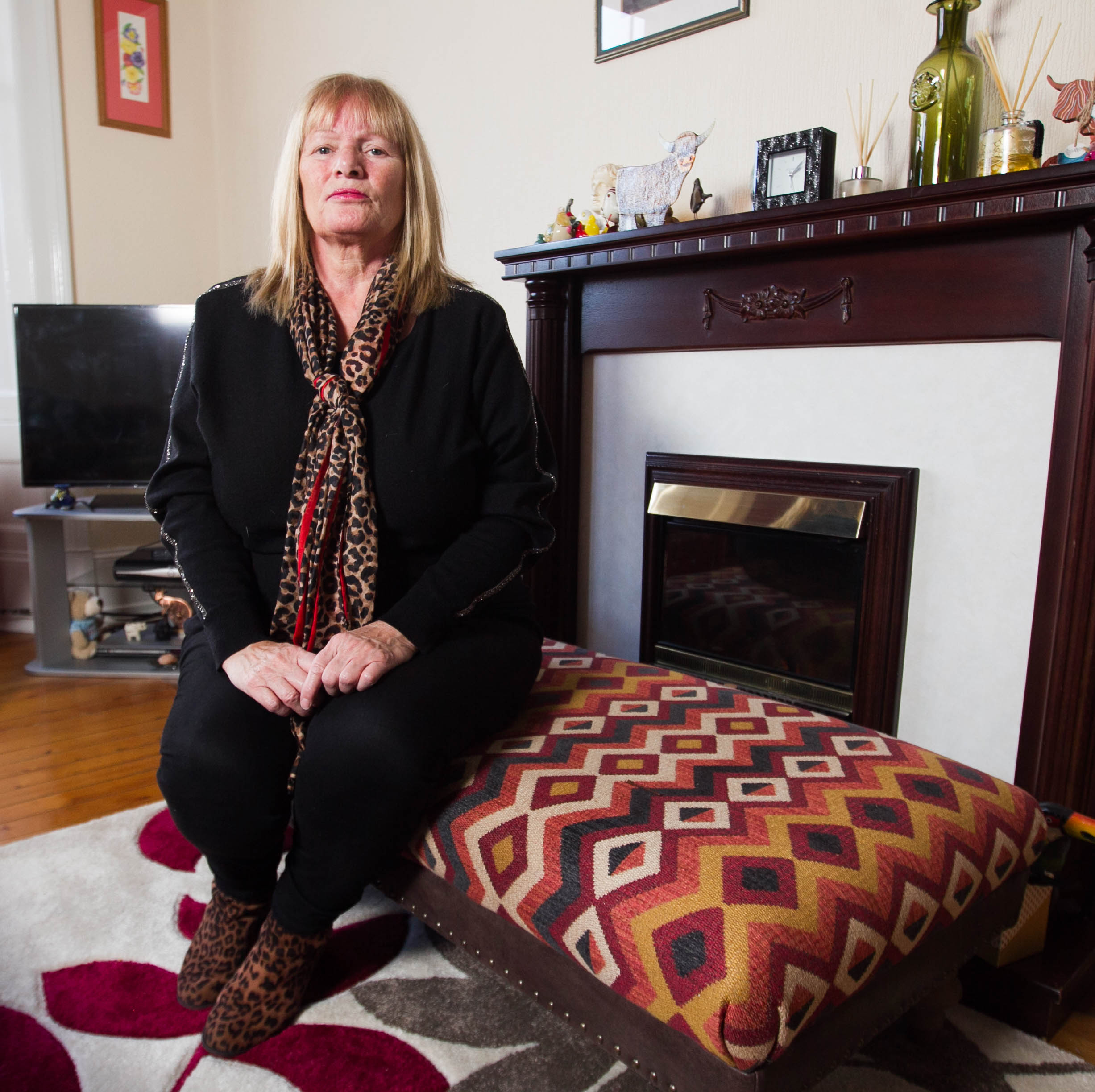
THOUSANDS of Scots women will be asked their experience of the menopause as pressure builds for greater support from their bosses and awareness in the workplace.
The Scottish Women’s Convention, which hosted Scotland’s first Menopause Conference last week, brought together hundreds of women, health professionals and government ministers to talk about how the menopause impacts working lives.
It now plans to lobby the Scottish Government to introduce workplace policies that offer support to women going through menopause and is also calling for greater awareness among health professions.
SWC chair Agnes Tolmie said: “Menopause has been women’s best-kept secret for years. It’s hard to believe that it affects every woman at some point in their lives, but is still such a taboo subject.
“Women are just expected to ‘get on with it’. There is very little support available and many feel isolated, alone and embarrassed.
“The fact nobody talks about it just makes it worse.
“But we hope by creating an open discussion we can start to make a difference.”
A survey of over 3,500 women by the STUC Women’s Committee last year found 32% of female employees felt that the menopause was treated negatively in their workplace while 62% said it was treated “as a joke”.
Issues raised included hot flushes, heavy periods and insomnia making it difficult to concentrate at work. One woman said: “Very heavy bleeding makes you tired. Sitting in long meetings, one may ‘flood’ and hot flushes can be embarrassing.”
SWC now plans to conduct its own survey among its thousands of Scottish members in a bid to force employers to take the issue seriously.
In October, South Lanarkshire Council became the first Scottish council to introduce a menopause policy to help support its female workforce.
Depute Provost Collette Stevenson said: “This is a health issue that will affect all women at some time in their lives.
“It is important for any organisation of any size to recognise the support that is needed and that it’s not something women should feel embarrassed about.”
SWC hopes to see other councils follow suit.
Ms Tolmie said: “We’d like to see women be more confident talking about it, employers recognise it and a reduction in the stigma that it’s just ‘women’s troubles’.
“The whole issue just needs to be treated with a bit more knowledge and a bit more dignity.
“South Lanarkshire Council’s menopause policy is certainly a step forward. We would like to see all councils – and indeed all employers across the country – adopt a similar approach.
“It should be obvious for workplaces to make small adaptations to show how valued their workers are. Policies like this aren’t just beneficial for women – they benefit everyone.
“Highlighting the value of women going through a natural process is not just an equality issue, workplaces where women feel unable to speak up or are pushed out leads to economic, productivity and morale losses.
“It isn’t rocket science – women do not want to be off their work. Flexible working arrangements are key, rest breaks and paid time off for medical appointments. But I think just managers having an understanding of the menopause and the ways it can affect women could make a big difference.”
Monica Lennon MSP, convenor of the Cross Party Group on Women’s Health, said: “This is another inequality women face which needs to be left in the past.”
From hot flushes and night sweats to mood swings and brain fog, the menopause can cause an array of debilitating side effects. But many still see it as a relatively taboo subject.
A survey by Radio 4 show Women’s Hour revealed that 72% of women don’t have a good understanding of menopause, even ones who are reaching the average age for going through “the change” (51 in the UK), while almost half said that their mental health had suffered due to not seeking help for symptoms.
Ruth Devlin, a nurse who runs Let’s Talk Menopause workshops, started the company after going through the change herself and realising there was a lack of information and support.
The mum-of-three, from the Borders, says the menopause is a “normal hormonal journey” and knowing more about it can help women cope with the symptoms.
“Education is key,” she said. “If women are educated on the menopause before it happens, like puberty, they will be better equipped to deal with it when it does.”
Projects like the Menopause Café movement, which started in Perth in June 2017 and is now a UK-wide event, are also helping, with a focus on bringing women together to discuss symptoms.
Dr Mahesh Perera, a consultant at Nuffield Health in Glasgow, and has decades of experience working with menopausal patients, says some women suffer such severe symptoms they have given up work.
He said: “Menopause is a bit like pregnancy. Pregnancy isn’t an illness, but there are varying degrees of complications. The symptoms are very hard to predict.
“Some women sail through, but 80% of women will have symptoms and, for a quarter, they will be so severe that they have a significant impact on their lives.
“Many women have given up work because they can’t cope.”
Broadcaster Mariella: Why we need to keep talking about it
Presenter Mariella Frostrup has added her voice to campaigners demanding greater awareness of the menopause.
In November, she fronted a documentary charting her own experience and asking why treatment available to women has not advanced more dramatically.
At the time, she said: “My marvellous gynaecologist Sara Matthews, who I see once a year, confirmed five years ago that I was going through the menopause.
“I was 51. As she points out, menopause is a retrospective medical diagnosis. It can only be applied after it has happened, since it’s defined as the moment a woman stops menstruating and the menopause is judged to have occurred a year after your last period.
“But it may start far earlier than you realise.
“I hadn’t realised anxiety, sleeplessness, memory fog, lack of motivation and emotional upheaval are all linked to the menopause.
“Sara agrees with me about the lack of communication and sense of shame surrounding the subject; whether it’s talking to girlfriends or our partners about it.
“We need to educate girls as well as grown-ups. It’s all very well knowing about periods, but schools ought to address the menopause as well,” she says.
Joyce’s story: It should be talked about more. It just helps to know that you are not alone
Joyce Cameron began to experience the symptoms of the menopause at just 25, but it took 13 years for her to be diagnosed.
“I think as I was so young, nobody suspected the menopause,” Joyce said.
“And the fact nobody talked about it meant even I didn’t know enough to work it out.”
Mum-of-two Joyce, from Glasgow, began experiencing hot flushes shortly after the arrival of her second son, David, now 36. “I assumed it was my body and hormones getting back to normal after having a baby,” the 61-year-old said.
“But then I noticed other things. I became very temperamental and then the night sweats started. I’d have to get up and change my pyjamas and sheets several times a night.
“I kept going to the doctor and being told it was ‘women’s trouble’.”
Joyce added: “I eventually got sterilised as I thought it would help. But things didn’t get any better. It was hard. I still had to be a mum and continue working, even though some days all I wanted to do was hide.”
Eventually, at the age of 38, Joyce saw a different doctor, who diagnosed early menopause.
The shop assistant said: “I remember her saying, ‘You shouldn’t be suffering like this.’
“She said it was probably best I have a hysterectomy, and then start some hormone replacement therapy (HRT).
“But that was a challenge, too. It took a while to find one that worked.
“Eventually I had an HRT implant in my stomach.
“And it made work – and life – so much easier.”
Joyce added: “Things could have been easier if it was something that was talked about and accepted more.
“Women don’t understand what’s happening to their bodies. It’s a strange feeling.
“But being open about it at least lets you know you’re not alone.”

Enjoy the convenience of having The Sunday Post delivered as a digital ePaper straight to your smartphone, tablet or computer.
Subscribe for only £5.49 a month and enjoy all the benefits of the printed paper as a digital replica.
Subscribe